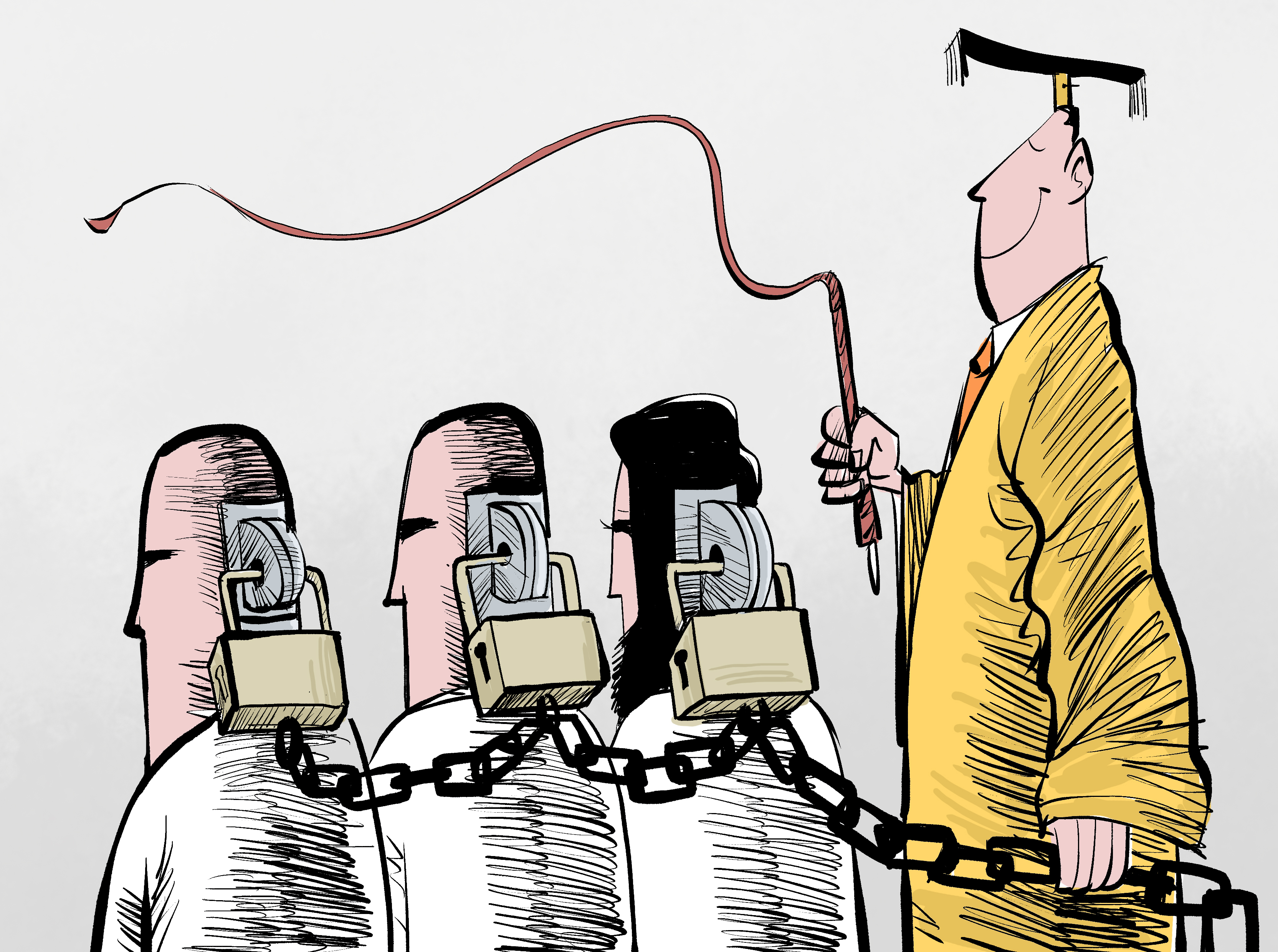LIN CUNGUANG: 'Three cardinal guides' unjustifiable

Cardinally misguided
Poem by Long Yuan, Cartoon by Gou Ben
Some scholars are trying to revive,
The ancient creed of the “Cardinal Guides”
That the fate of subjects, children, wives,
Is for rulers, parents and husbands to decide.
This sort of top-down power relation,
Is beyond defense and justification,
Despite the vociferous promotion,
Of this fatally flawed Confucian notion.
Many lines become needlessly blurred,
Misinterpreting the meaning of the Master’s words.
With the revival of Confucianism in recent years, some scholars have gone far beyond preserving the legacy of excellent Chinese traditional culture to justify some much-criticized ideas, including the concept of the three cardinal guides: the ruler guides the subjects, the father guides the son and the husband guides the wife. As far as I’m concerned, support for these flawed notions has not clarified but muddied the essence of Confucianism.
The prevailing attitude among academics is that the three cardinal guides indicate unequal interpersonal relations of dominance and submission. As He Lin (1902-92), a renowned Chinese philosopher, wrote in his article "New Criticism on the Five Cardinal Relationships," the authority of three cardinal guides has imposed shackles on minds and personalities and impeded progress for thousands of years. This indicates that reasonable ethical relations also require the dominators to fulfill their corresponding duties.
He Lin interpreted the true meaning of the three cardinal guides through historical examination and introspection. He by no means intended to restore the original meaning but to establish new codes of conduct. Of course, such an effort to set up new codes of conduct for both sides in a relationship from the perspective of absolute deontology is realistically reasonable. However, obligations should correspond to rights. It is one-sided to emphasize obligations while neglecting people's rights and vice versa. In this sense, the perspective of rights is also needed.
Nonetheless, some contemporary scholars are rushing to justify the three cardinal guides without historical context and reflection. Among them, some oppose interpreting the idea from the perspective of domination-submission relations but use the perspective of contractual relationships instead.
They believe the idea, as proposed by Dong Zhongshu (179–104 BC), a Confucian scholar of the Han Dynasty (206 BC-AD 220) and explained in the Comprehensive and Interpretative Discussions on Classics at the White Tiger Temple, refers to different roles and status between ruler and subjects, father and son, and husband and wife rather than inequality. They claim the relations are equal in terms of ethics and personalities as well as cooperative, with each one playing a complementary part.
Also, some explain that the meaning of the three cardinal guides is to dutifully fulfill one's role for the common good. They hold that the idea does not necessarily mean absolute obedience but identifies the extent of importance of different people within a relationship. Namely, someone is guided by another means he or she puts another first.
However, in fact, putting someone first necessitates one being submissive to the other, which in essence requires the majority of common people to submit to the rule of the privileged minority. The claim such as "both sides are free and equal but have different roles to play" is disingenuous.
No doubt, those scholars who attempt to justify the idea have regarded history as a plaything that can be arbitrarily misinterpreted. However, drawing upon an incorrect view of history, they sabotage themselves, misleading themselves and others and undermining their claim of the idea's superiority over Western thought. And it remains essential to fight against this trend.
Lin Cunguang is a professor from the School of Political Science and Public Administration at the China University of Political Science and Law.
